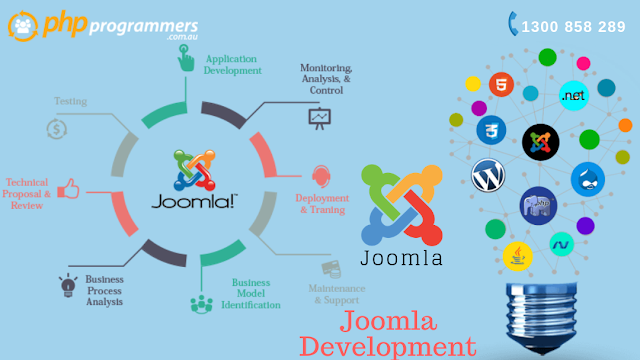7 Witty Joomla Tricks For Website Security
While Joomla has been the top-notch CMS used for websites development, only a few care about the security hacks to deploy using it for upgrading their website’s security. Read this article to know few persuasive tricks that Joomla users need to know for ensuring their site’s security.
Not only Joomla web applications, but applications built with any platform are subjected to privacy threats and hacks. It is predominantly essential for you to take care of the security aspect of your website to ensure the visitors or customers’ privacy are maintained. Further, Joomla is also said to be one of the most vulnerable platforms. However, sites powered with Joomla are subjected to many hacking attacks because either the developers or the owners are not wary of the tricks that they need to apply to tighten the security of the site or application.
Here are some of the most vital tips for you.
#1 Run the update timely
If you are relying on a Joomla website for your day-to-day business, then it’s vital to keep it updated always to the current or last version of the software. This is necessary because every version releases with new technology upgrades, fixes which may further strengthen the security of the website.
#2 Extensions need to be managed
With the help of the extension manager, you need to manage all the extensions deployed in your site. While the use of third-party extensions are an indispensable part of business websites and so as for Joomla sites, there are effective sources for the attackers to breach into a site. So, each of the extensions has to be patched, rechecked or updated to ensure there are no loopholes.
#3 User registration has to be disabled
Until and unless your website is a community site, you should disallow or disable the user registration for assuring the security.
#4 Two-factor authentication
This is a pivotal login method for websites where a user is needed to keep his or her name, password and an instant generated OTP or One Time Password. This should be the method of authentication for your Joomla website too so even if an intruder knows the admin username and password, he or she will need the OTP for login.
#5 SSL certification is a must
Apply SSL mode to your Joomla website platform, particularly for every login. However, make sure there’s a correctly configured SSL certificate for the website’s domain. It is essential because such a trick will allow the browser to encrypt the username, password, and other credentials before transmitting it to the server over the internet.
#6 Run scan for vulnerabilities
There’s an absolute need to run the vulnerability scan periodically and in short intervals on the Joomla website. Many security scanners are available out for detecting site’s vulnerabilities, and you just need to get the best one for your site.
#7 Never forget to enable the SEF URL support
Well, this is really important. SEF or Search Engine Friendly (SEF) URL support will make your site’s URL more visible and hence easily discoverable in the search engines. This counts as a major security aspect because of the component of SEF masks upon all vital information provided in the Joomla site’s URL. For this, identifying any security vulnerabilities on the site is a hard nut to crack for the attackers.
Needless to say, adhering to these lesser-known security tips can get your Joomla website’s privacy fully protected. Applying all these quirky measures will make sure your site is very less likely to be at the risk, but only when it’s powered with the latest version of the Joomla platform.
Jonathan Paul is one of the most senior CMS experts at PHPProgrammers, a visionary firm for Joomla development in Australia who has years of experience in websites and applications development.
Post Your Ad Here







Comments